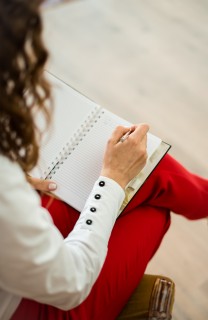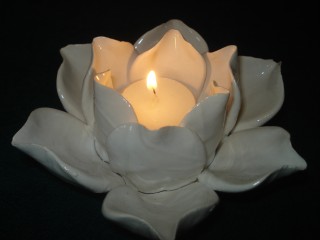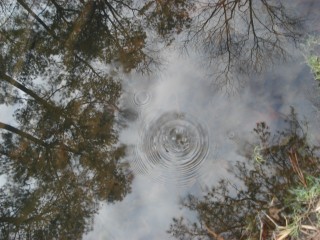Blog & News
You have so much going on in your life, and it gets overwhelming sometimes. The stress really gets to you. Sometimes it seems like it’s overwhelming your ability to cope. You might find yourself struggling with anxiety or depression or both. And you’ve wondered, should I see a therapist, or is this something I can take care of on my own?
Journaling can be therapeutic, and it is an awesome healing tool. But is it enough?
There’s a lot of overlap between journaling and therapy:
- Telling your truth
- Examining thoughts, feelings, and behavior
- Finding meaning in pain
- Catharsis
- Examining patterns in your life
- Disclosing secrets
In the first half of the month, we reflected on 2021. See this post. We’re going to spend the last two weeks of the year looking forward and thinking about what we want for the coming year. New Year’s resolutions are easy come, easy go, but when we spend the time to deeply reflect on what we have learned from the previous year, what we want more of, and what we want less of, those intentions have a better chance of sticking. So here are your New Year intention questions:
- What’s your history with New Year’s resolutions? Have you ever had one really last? What factors went into that? What about habits you have created at other times of the year? What went into making those habits stick?
- When you reflected on 2021, did anything stand out to you that you want more or less of?
- Where do you hope to be in 10 years? 5? What needs to happen this year to move you toward that?
- It’s the end of 2022, and everything you hoped for has happened. You are telling your friend about it. Describe what the year has been like.
- What part of that vision is happening already? What did you do to make those parts of the vision happen? (adapted from SFBT)
- Put a 1-10 number on how close your life is to that vision right now. What would it take to bump you up just one number on that scale? (adapted from SFBT)
- What have you discovered about your values? If you had to put a word to your most important value, what would it be?
- How would you like to live out your most important values this year?
- What gets in the way of living your values? Can you think of ways to troubleshoot this so that you can find ways around these barriers?
- What emotions do you most want to feel this year? What activities tend to bring up these emotions?
- Who do you want to connect with this year? What ways would you like to connect with these people?
- What do you want to contribute this year?
- What things recharge your batteries? How much recharging do you need in order to be the kind of person you want to be?
- Howard Thurman reportedly said, “Don’t ask yourself what the world needs. Ask yourself what makes you come alive, and go do that, because what the world needs is people who have come alive.” What makes you come alive? What would it take to do more of that this year? (Quote in “Violence Unveiled” by Gil Bailie)
- Given all these things that we have explored, what are some SMART goals you can set for yourself (Specific, Measurable, Attainable, Relevant, and Time-Bound)? Think about whether you want to set goals for the year, or just for January and go month by month, or whether you want to set a goal for the year and break it down into monthly steps.
It’s December first, and I’m all geared up for my December reflections! As promised, here are 30 prompts for reflecting on 2021. I worked on the first three this morning. My goal is to work through these 30 in the first 15 days of December and then spend the last half of the month working on looking ahead to the new year. So I’ll be posting looking ahead prompts in the middle of the month. Enjoy, and leave a comment to let me know what you are getting out of working through the prompts!
- What have you gotten interested in this year?
- What have you read?
- What have you learned?
- How are you different now than you were at the beginning of the year?
- If you had to give this year a theme, what would it be? Is there one word that describes your year?
- Who has impacted your life this year?
- What were your New Year’s hopes and dreams this year? How did that pan out? Be gentle with yourself!
- What did you accomplish this year?
- What have you done effectively this year?
- What have you done ineffectively?
- Where have you been spinning your wheels?
- What emotions have been dominant this year?
- What emotions have you avoided this year?
- Did you create any new habits this year? Are they ones you want to continue with?
- Where have you been disappointed this year?
- Where have your expectations been fulfilled?
- What do you wish had been different this year?
- Is there one thing that has to change as you move out of this year?
- What has been happening this year that you would like to keep happening? (adapted from SFBT’s Formula First Session Task, de Shazer 1984)
- What are you grateful for this year?
- How would your friends or family describe you this year?
- Looking back, what do you wish you had done less of? More of?
- If you keep going on the trajectory you’ve been on this year, where will you end up in 5 years? 10?
- How do the choices you made this year line up with your values?
- What is left unfinished as this year draws to a close?
- Have any secret dreams been left unattended this year?
- What have you built that you would like to keep building on?
- What is your favorite memory from this year? Is there any way to have more of that happen?
- If this year were a color, what color would it be?
- What happy accidents happened this year that you might like to turn into something intentional?
December is my favorite time of year…and it’s not because of the lights and music and movies. It’s because December is a time when I reflect on the year that is passing and on what I want for the coming year.
There’s something about reflecting on the year gone by that lets you really appreciate how much you have changed, what you have accomplished, what you have learned. And you feel connected to yourself in a deep way.
I start off by going through Facebook posts, my Amazon wish lists (when I get interested in a topic I look for books on that subject and put them on my wish list), and my planner. I make a list of all the significant things that happened that year, and what I was interested in, who I connected with, and what I and my family did.
That list helps me really think about what I accomplished and what I learned. And it gives me a springboard for responding to journal prompts about the year that is finishing up.
This December, I’m going to give you two sets of prompts. The first set will be prompts for reflecting on 2021. The second set will be about looking forward to 2022.
Am I more worried about what I think of myself or about what other people think of me? Why? If other people think badly of me, what am I afraid will happen? What would that mean for me? What would that mean about me? What would I then believe about myself? What consequences am I afraid of? What do these fears remind me of from my early life?
What am I hiding from everyone else?
What am I hiding from myself?
To find the core belief that is behind a specific fear or anxiety, try this: start with a surface fear and ask, “If that were true, what would it mean? What would it say about me?” Keep asking that question to every answer until you get to a core issue.
This comes from David Burns' Downward Arrow technique.
Think about something you're really worried about currently. Get in touch with how the anxiety is affecting you and what the worries are that are spinning through your head. Pick a point down the road when you think this issue will be resolved--maybe a year from now, maybe much longer or shorter. Write a letter to your current self from the perspective of that future self. Share what it's like to have the issue resolved. Tell yourself what you wish you had known earlier. Give yourself advice for getting through this trying time.
What are all your worries and fears? List as many as possible. Do you see any patterns? What are the categories? What common themes are there?
I once wasn't sure why I was feeling so anxious, but when I sat down and wrote out all my worries, I came up with three pages! Doing this prompt could be enlightening for you!
This month we’re going to be exploring anxiety. It’s a rare person who doesn’t struggle with anxiety, at least some of the time…whether that’s nerves before giving a presentation at work, to worry about how the pandemic might affect you, to waking up in the middle of the night thinking about choices your kids are making, to barely controlled fear about people judging you, to unexplained panic attacks.
This doesn’t fall under the realm of journaling, but I just want to put it out there: therapeutically, you can’t beat exposure when dealing with anxiety. Exposure means deliberately facing the things you are afraid of and allowing yourself to experience the anxiety so that your brain and body learn that the feelings are uncomfortable but not dangerous. If you’re looking for a resource on how you can work exposure into your life and recover from anxiety disorders, I recommend Drew Linsalata, who runs a Facebook group, has a podcast, and wrote a book called The Anxious Truth.
Having put out there that there’s no substitute for facing down your fears, there’s a lot journaling can do for anxiety. Journaling can help you:
Become more aware of your triggers
Take a more mindful stance toward your anxiety
Does your spirituality play a role in your identity? Does your spirituality define who you are, or does your identity define how you approach spirituality?
When you look at yourself as a child, do you see anything unchanging in who you were then and who you are now? What is that essence?
Do you believe you have inherent worth? What created that belief (one way or the other) for you?
What roles do you play in life? Which are most important to you? In which roles do you feel most authentic? Why? Who are you outside of those roles?
Gently explore whether you have a shame story that has defined a part of who you are. Write about the story and allow yourself to feel whatever comes up. What did this story cause you to believe about yourself? Do you still believe this? What would help you let this go?
Do you feel most like yourself when you are alone or with other people? Why?
What sources do you look to in order to help you define yourself? Think about both healthy and unhealthy sources. One of my favorite mystics, Madame Jeanne Guyon, experienced a profound change when a Franciscan told her, “You seek without what you have within.” How might this apply to the ways you try to define yourself?
Have you ever let another person define who you are? What made their definition of you so powerful?
Has there ever been a moment or time period that caused your personality to change? Tell the story. What did you believe about yourself as a result of this event? How do you see the essence of who you are before and after this event?
Sign up for blog post notices and receive my 30 days of journal prompts for subscribing.





